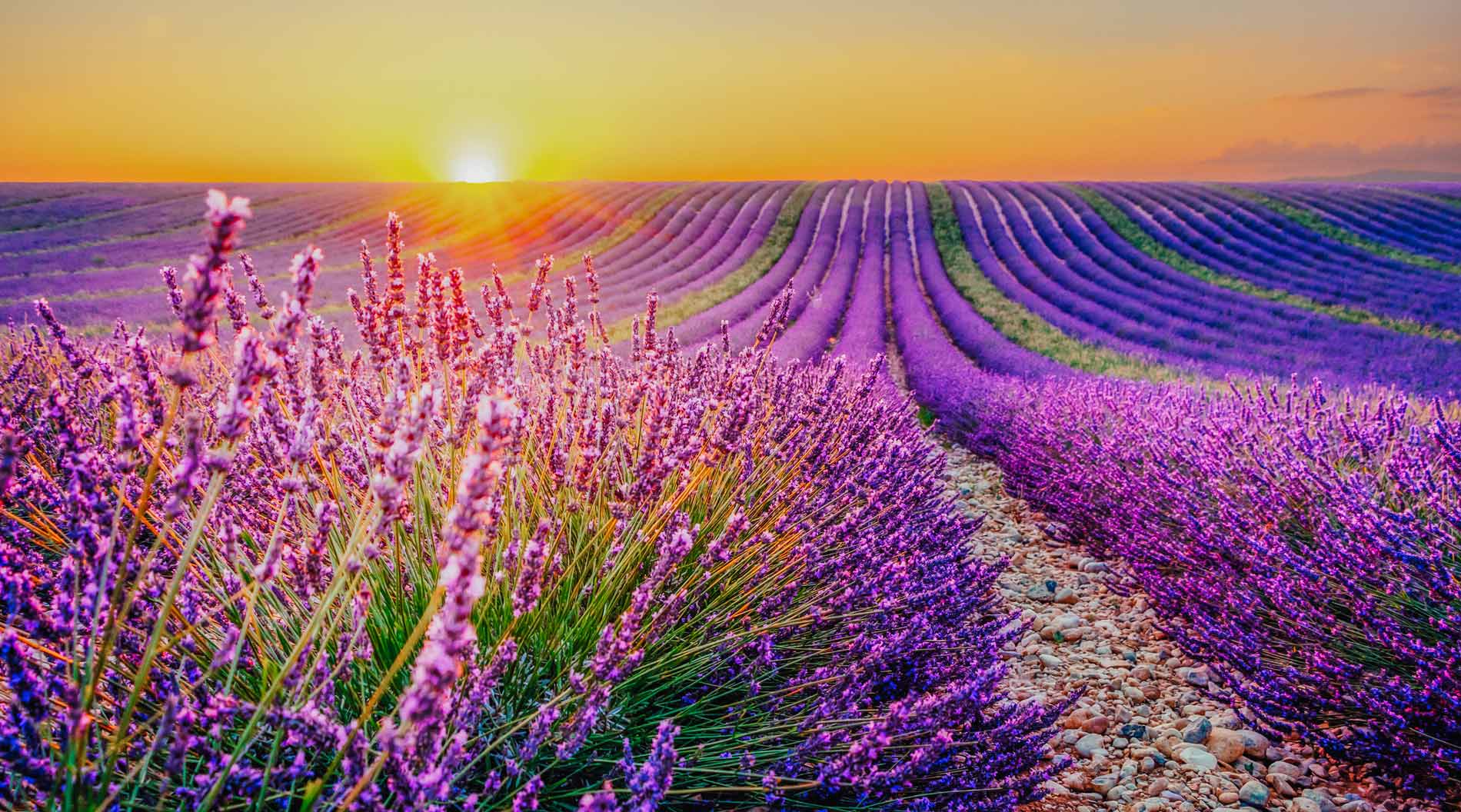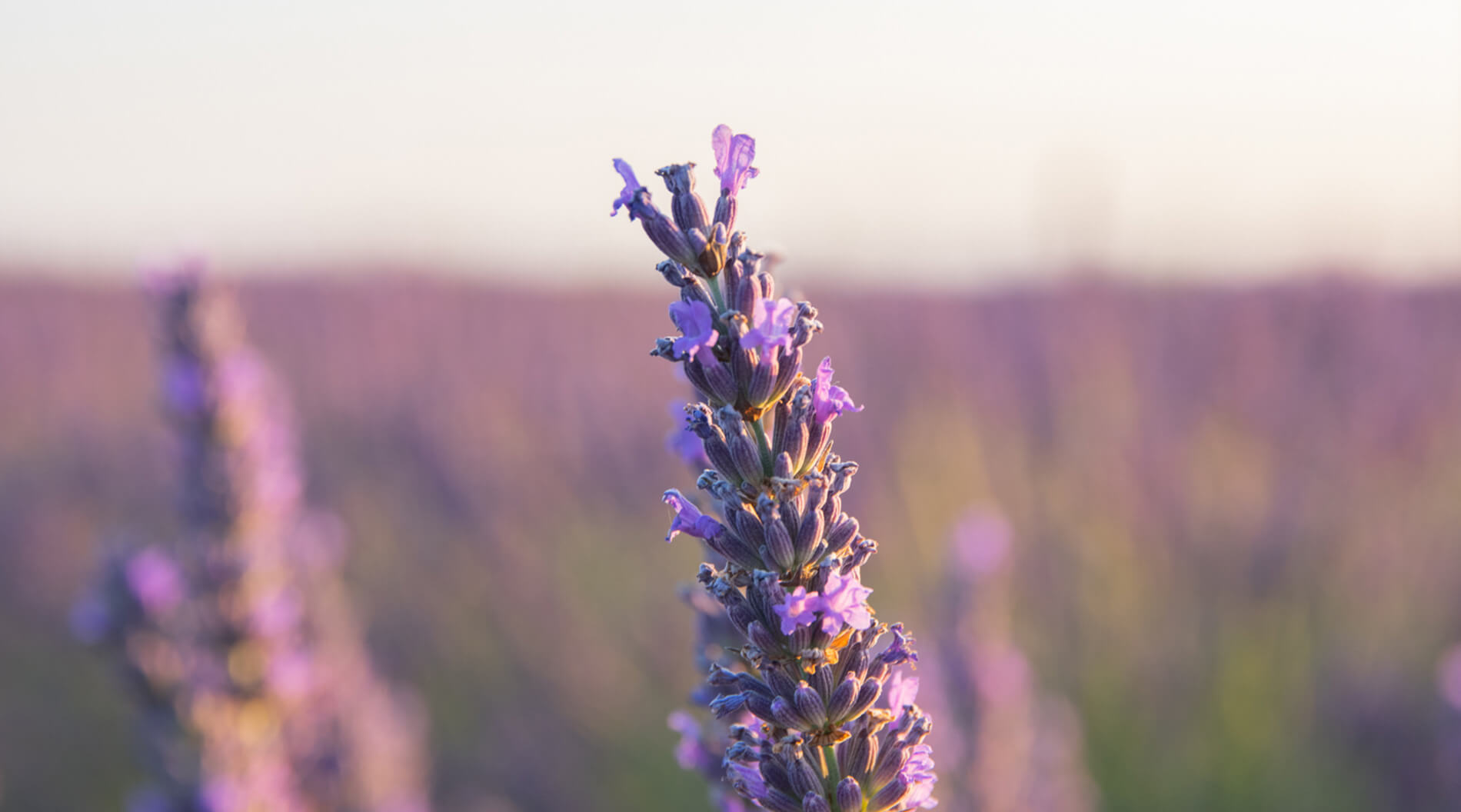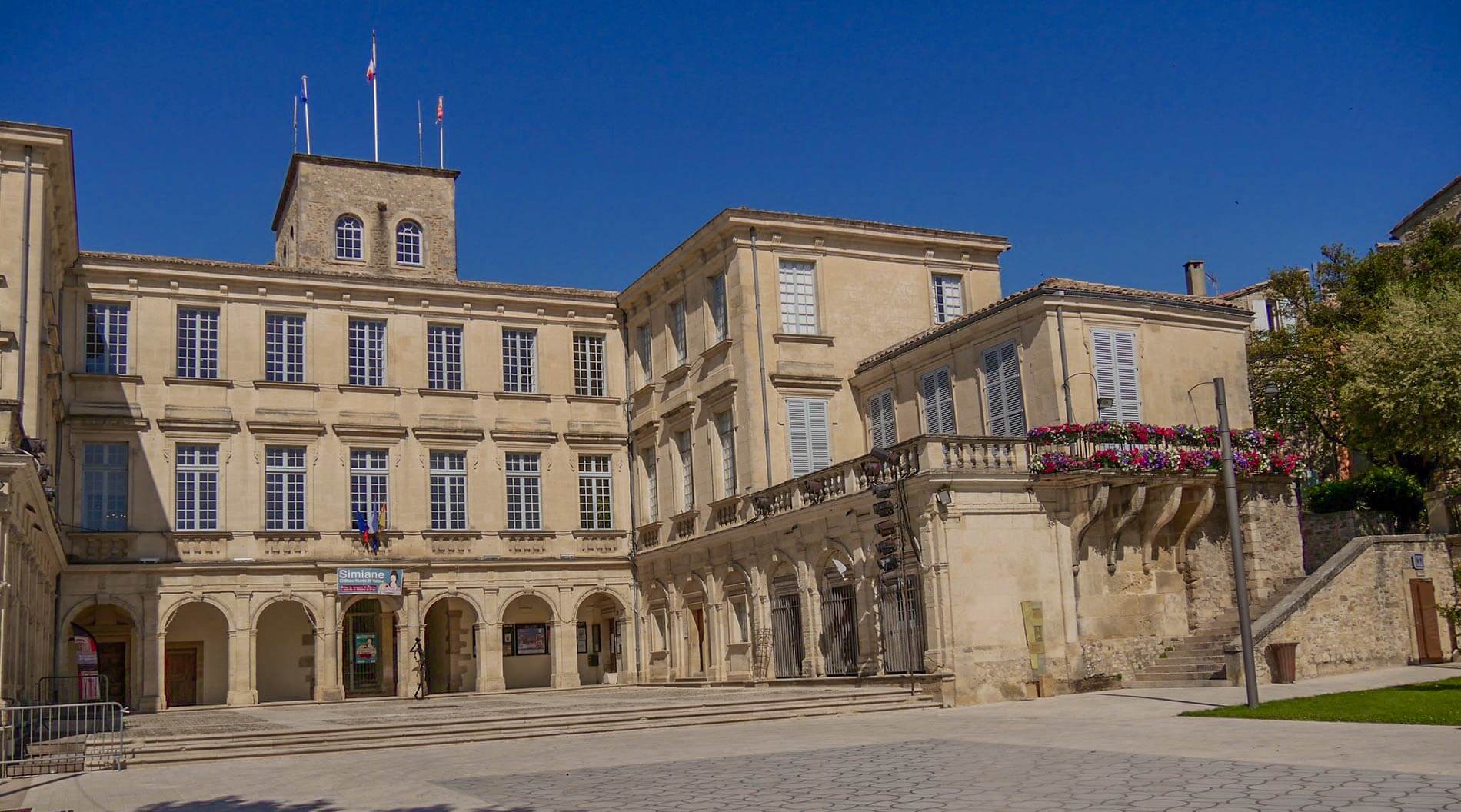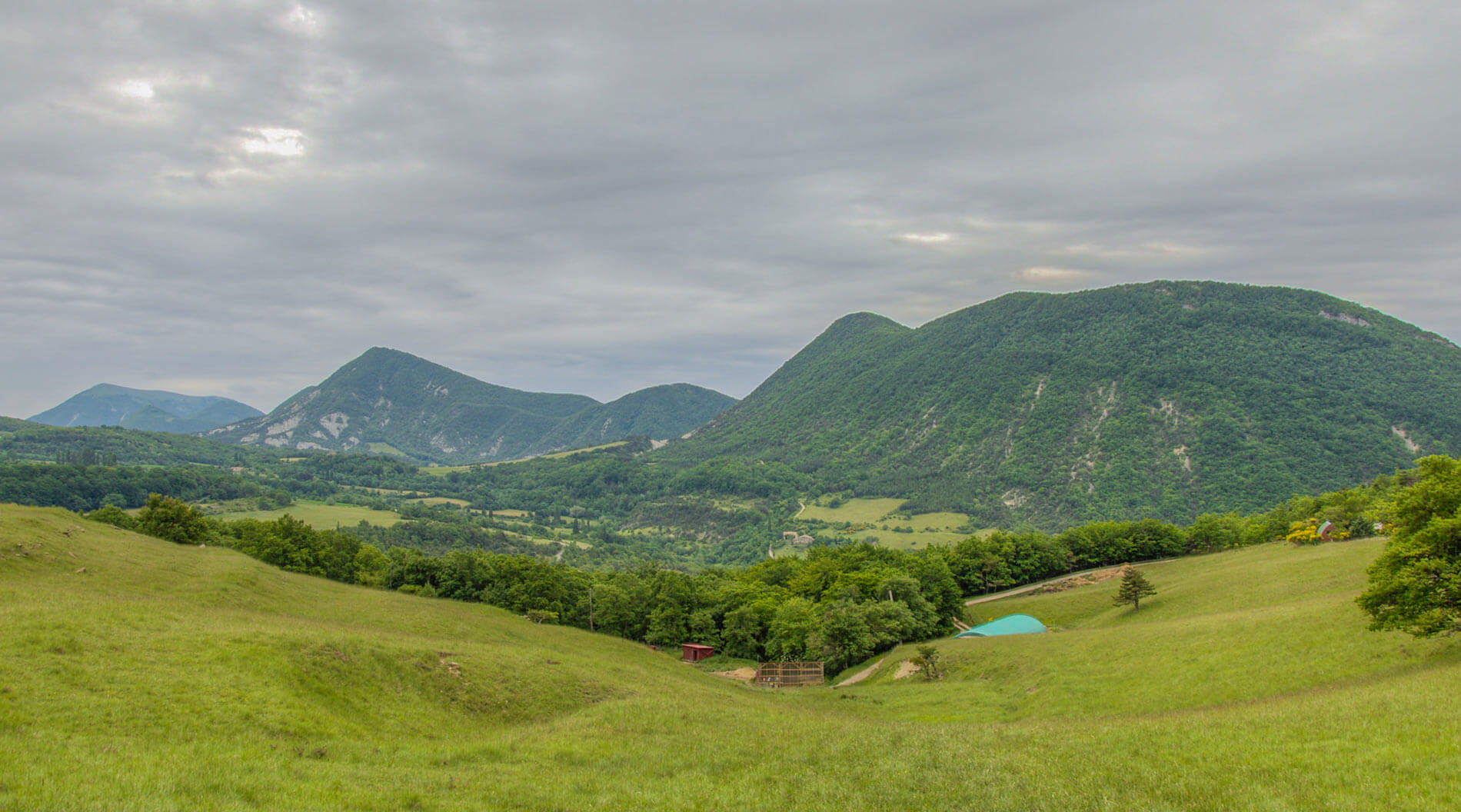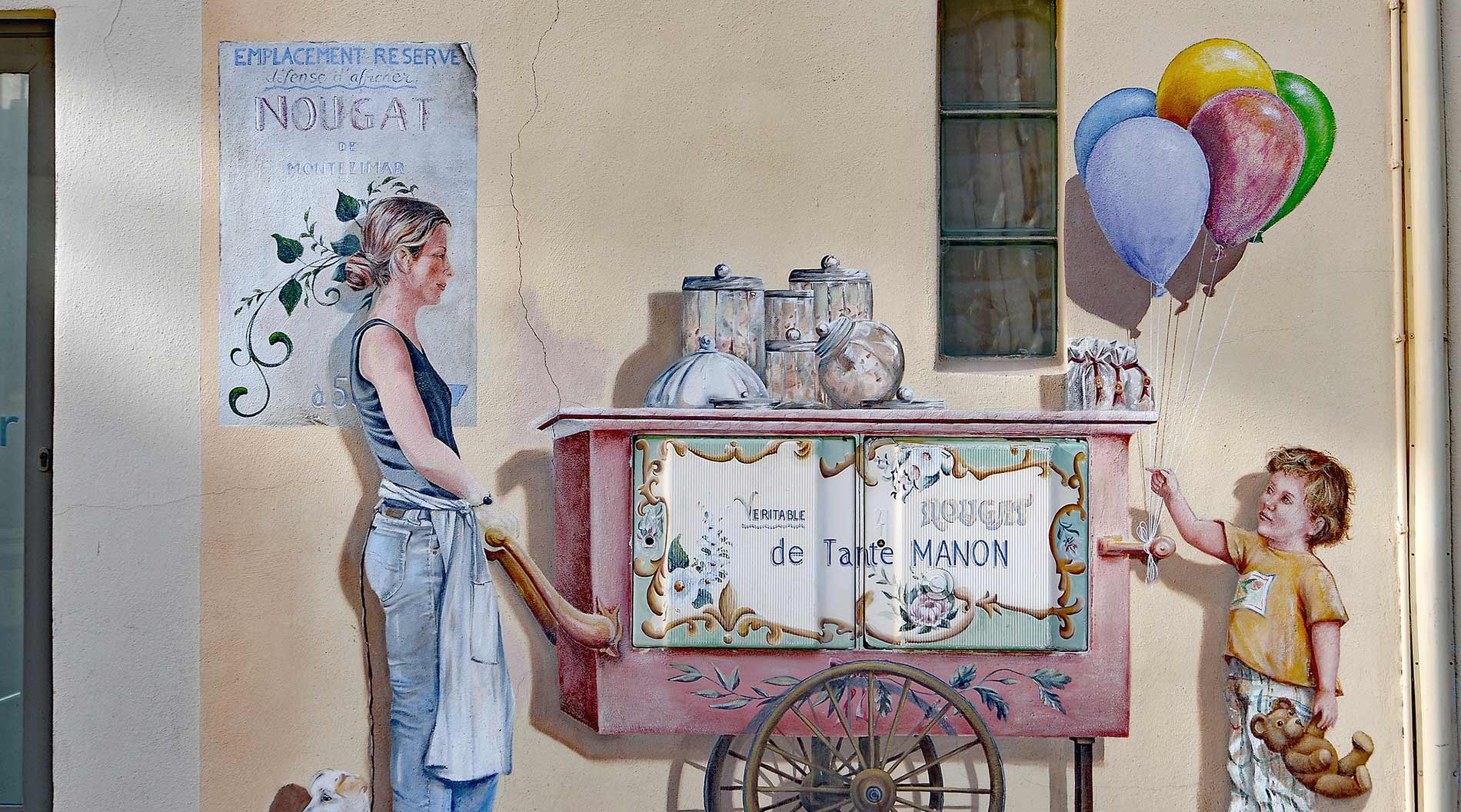Local products from the region
With its sunny climate, the Drôme is a place that is conducive to growing crops. Fruits and vegetables, wines, aromatic plants, livestock, seeds,
etc.: Agriculture in the Drôme cultivates the taste of diversity and excellence.
The Drôme is the first supplier of organic products in France.
• Olives and olive oil
• Lavender
• Nougat
• Truffle
• Wine
• Fruit and vegetables
We prefer a short delivery cycle, which means that you can buy directly
on the farm, or in a store that sells products from different farmers of the
region. Take advantage of your camping stay in the Drome to taste local products!
The Drôme’s organic specialties
The Drôme Valley is a rural area covering 2,200 km² in the Rhône-Alpes region of southeastern France. Bordered by the Drôme River, watershed and surrounding mountains, the valley is populated by 54,000 inhabitants living among 102 small towns and villages. A variety of natural growing conditions creates a truly diverse agricultural landscape, supporting grain, poultry, fruit and seed production in the lower valley, extensive cattle raising in the mountains, and wine. The hillsides of the area flourish with grain and fruit production.
Emergence of organic farming
Organic farming in the valley emerged in the 1970s, driven by a group knowledge-sharing effort among peers. The approach was an alternative to traditional farming that promoted organic inputs, and was driven by the arrival of migrants from urban areas seeking to reconnect with the land and practice organic methods. In the early 1990s, a network of cooperatives in the upper valley (supplying grains, aromatics, medicinal plants and wine) established a program to develop organic channels and access higher value markets.
A practice worth pursuing
Changing farming practices initially proved quite difficult. In the lower valley, numerous farmers continued to question the economic viability of organic farming. The limited availability of organic inputs, lack of distribution services and limited supply chain opportunities for organic products also proved to be major obstacles.
Alternative practices and new supply chain infrastructure truly emerged thanks to the introduction of new ways of collaborating across area sectors. In the 2000s, local establishments began to appreciate the value of organic produce, and this inter-community cooperation promoted the transition to organic farming. This movement culminated in the implementation of an ambitious sustainable development project for the entire Drôme Valley in 2009, called the “Biovallée Project”.
Although the initial objectives of the plan have not yet been attained, nearly 40% of the farmers in the Drôme now use organic practices.
An exhibition dedicated to organic innovation
Every two years, the Drôme hosts the Tech & Bio Exhibition, an event organized by the Chambers of Agriculture and some sixty partners. Since 2007, this event features and promotes the most innovative techniques between professionals working towards sustainable and efficient agriculture. The Tech & Bio Exhibition has grown with each occurrence and has become more internationally influential, supporting significant growth in organic farming.
A booming market
In terms of consumption, the French organic market continues to become more widespread. Nearly 5% of food consumed in French households comes from organic farming. In 2018, the market grew by 15% and reached 9.7 billion euros.
The consumption of organic products is increasing across all product families. An impressive 69% of organic products consumed in French households are produced in France. In 2018, mass distribution increased in the sale of organic products, reaching 49% of the market share. Specialized organic stores now represent 34% of sales and 12% of direct sales. The share of organic products among collective eateries increased by 27% since 2017, putting France’s organic market at second place in the European Union, at 9.7 billion euros.
The Drôme Valley is a gastronomic delight, thanks to its excellent produce and vineyards. Visit the valley and meet the area’s passionate and proud producers and growers.
